Resources for teachers’ continuous professional development
In the “Resources and Reviews” section, Shivaranjani shares a set of resources in the space of CPD for teachers, which can help us support the process of honing reflexivity, pedagogical content knowledge, self-assessment, dialogic engagement, and self-directed learning among our teachers.
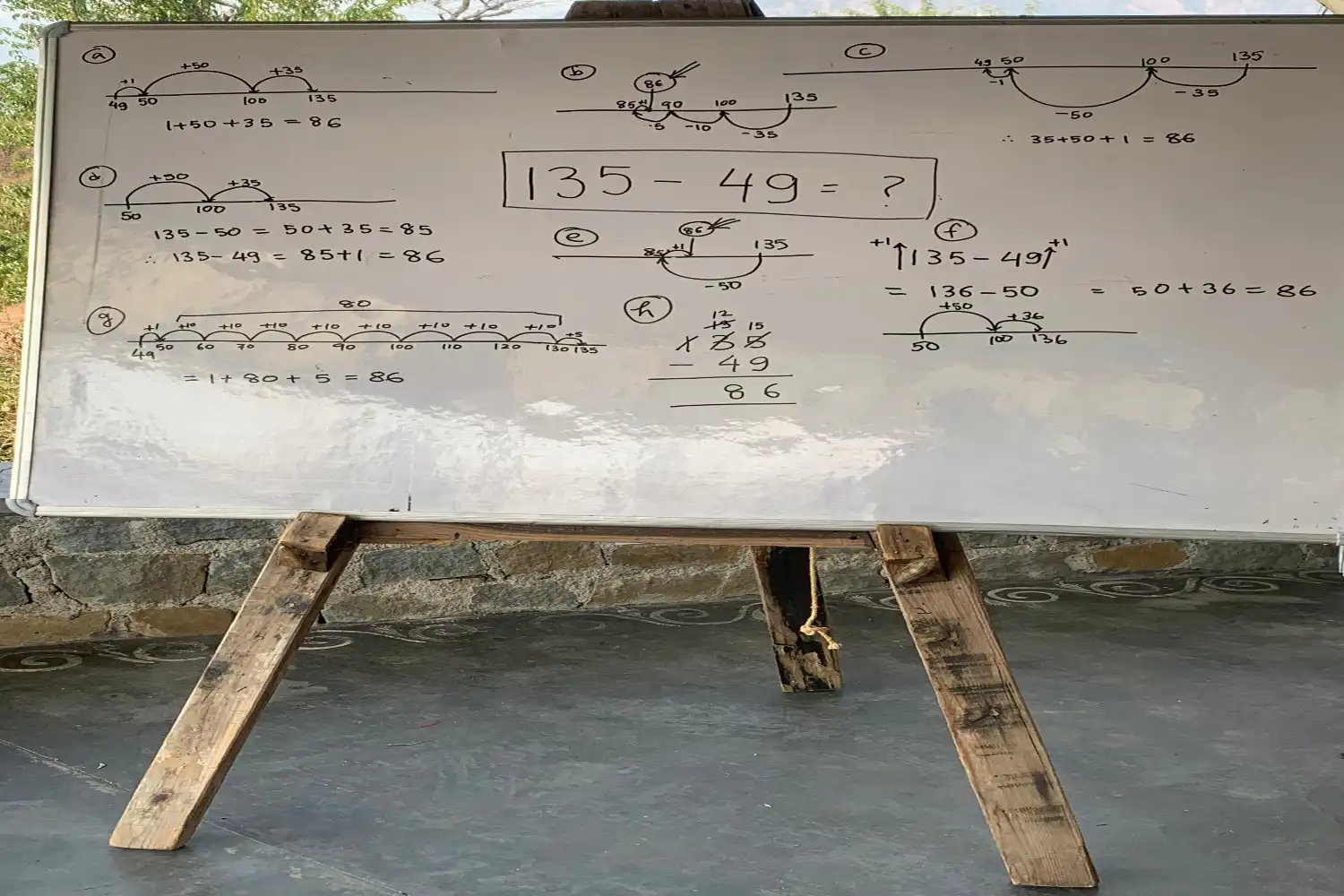
“ Where can I find new ways to teach this lesson?” is one of the fifteen hundred decisions a teacher makes every day. In this piece we share with you three sets of ready-to-use resources in the space of continuous professional development of teachers (CPD) curated by three organizations – Samait Shala, Aavishkar and Firki.
These resources have diverse nodes of accessibility. These include online, appbased, videos, and paper-pen, etc. They cover domains such as self-development, pedagogy and content development. The three curated lists of resources take various forms.
Samait Shala’s list includes magazines for teachers being run by a university, NCERT’s self-assessment rubric, and open-source video resources for teachers. The curated list also shares reflections on the use of these resources by the organization.
The section by Aavishkar talks about the organization’s discussion practice called “ganit/vigyaan charchaa” or “math/science talk” in some detail. They share videos that provide a sense of what happens in these talks. The shared reflections and the videos can help other organizations who want to carry out similar activities for teacher development through deliberative discussions.
The section curated by Firki discusses their work in the space of professional development of teachers through an eponymous online platform. It hosts in-service and pre-service courses for teachers, and other learning offerings for school leaders. It also offers learning paths, resources and webinars for teachers who want to hone their skills in specific areas. This section discusses all these offerings available on the Firki platform in some detail, and provides the relevant links.
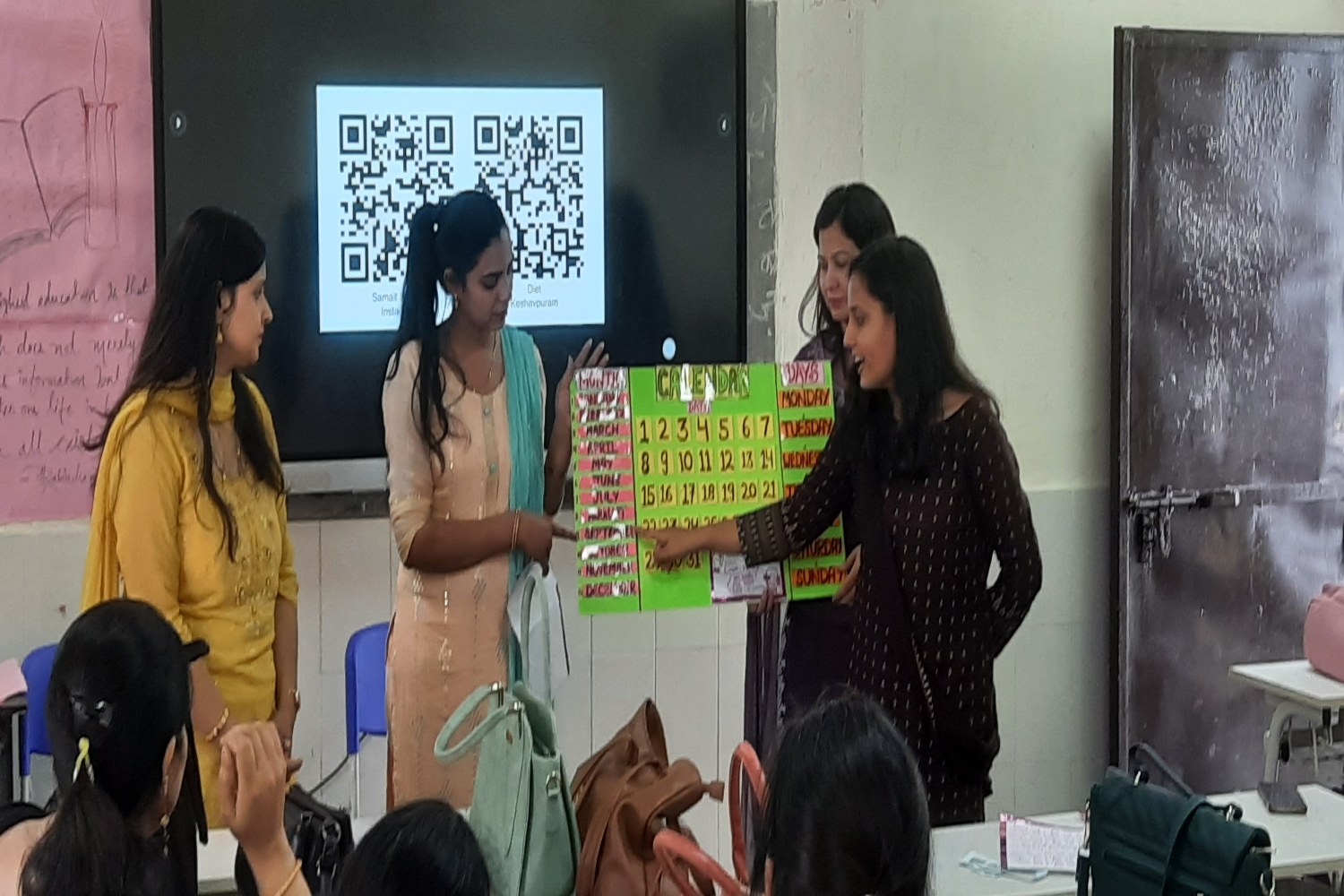
Samait Shala
The vision of Samait Shala Education Foundation is to create an inclusive learning environment for every child. Its mission is to create an inclusive environment in schools by enabling instructional leadership in teachers, school leaders, and resource teachers, so that they can make data-based decisions. Samait Shala enables instructional capacity in schools with two key stakeholders, school leaders and teachers. Its approach is to enable schools in building instructional capacity through inclusive teaching-learning practices. It supports the schools in developing their resource capacity through accessible teaching-learning materials for diverse learners. The organization also helps the schools in nurturing their partnership abilities to collaborate with relevant special education partners to bring required support for teachers and students in schools.
Tic Tac Learn: Tic Tac learn is an open-source video resource for math and science, led by Central Square Foundation, and contributed by other NGO partners. It is one of the largest open-source repositories of high-quality, curriculum-aligned digital learning resources (~12,000 videos, aligned item bank, etc.) available for everyone, free of cost. The video resources cover concepts in math and science of grades one to ten in six different Indian languages. Each video uniquely defines the chapter and the learning outcomes. It also provides subtitles and transcripts for increased accessibility of the content. One can replace English with the language’s name to access videos of other languages.
The strength of these resources lies in clarifying teachers’ own understanding about a particular concept. Samait Shala has used TIC TAC Learn to map all math chapters of NCERT textbooks with the requisite videos for that chapter or concept. The same videos are used in math training for concept demonstration and self-work. This ensures that teachers get fully comfortable in using the videos and the concepts. Teachers have also used these videos as a recap tool for children.
Link to the video resources: TicTac Learn English – YouTube
Magazines by Azim Premji University (APU): APU publishes magazines in print and online formats to provide good quality learning resources for teachers and educational functionaries. These periodicals promote dialogue among schoolteachers, practitioners and educationists on current discourses and perspectives on education, classroom pedagogy, research and on-the-ground experiences.
These periodicals provide valuable resources for science, mathematics, and language learning. They help build teacher capacity and facilitate meaningful teaching-learning processes inside the classrooms and in school processes. All these magazines are available in the public domain free of cost. APU also conducts weekly webinars where interaction sessions with the authors contributing to these periodicals are also facilitated.
Samait Shala has used these magazines to build dialogues and reflections on experiences in its learning circles. At least two learning circles (45 mins each) in a unit of six weeks are planned to discuss and reflect on different articles from these magazines. Teachers take pride to learn about the contexts and initiatives from other states, as it expands their knowledge. They find similarities in the struggles of other teachers, which helps them feel hopeful about solving them.
Resource Link: https://azimpremjiuniversity.edu.in/magazines-for-school-teachers
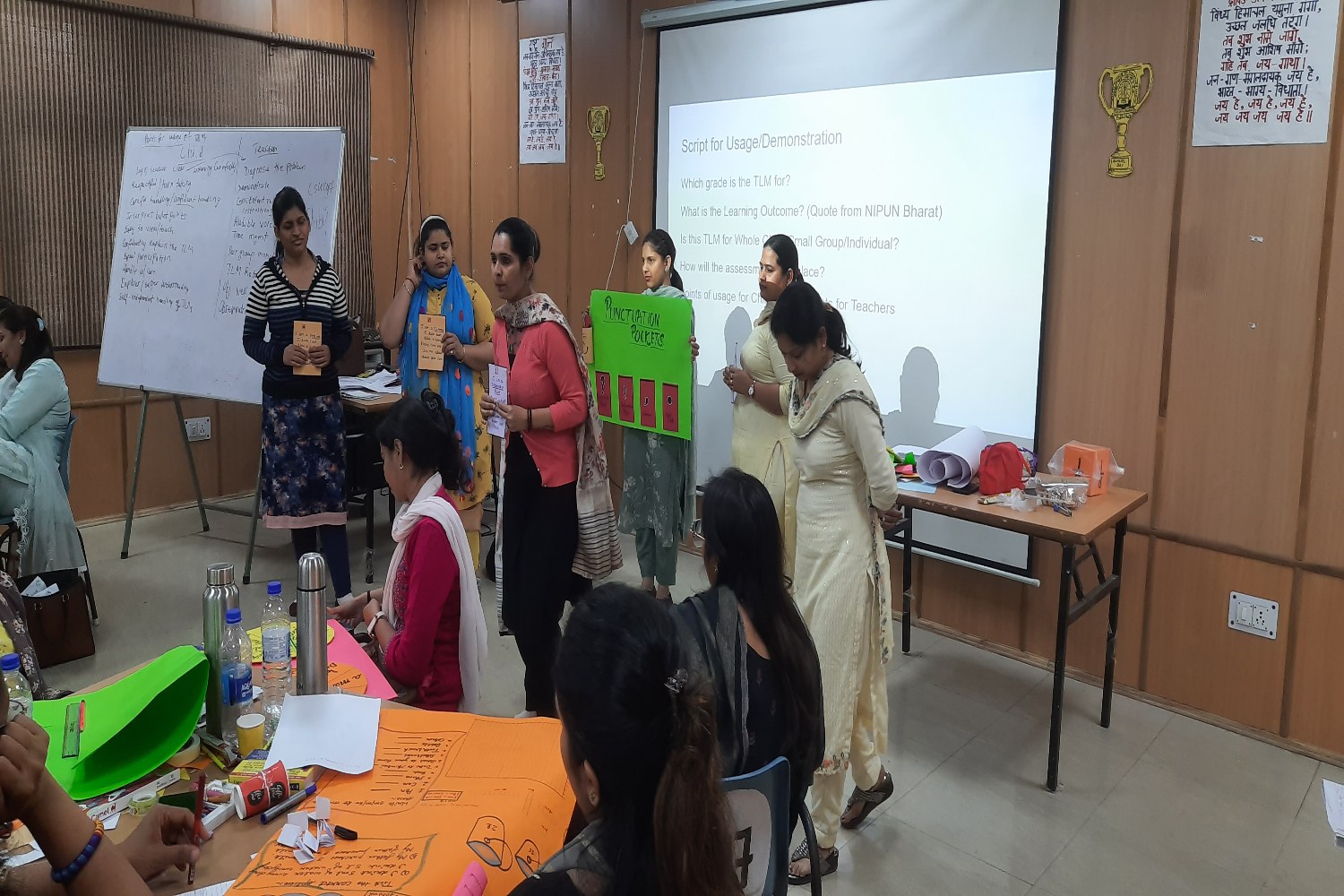
The Teacher Self-Assessment Rubric (TSAR) of National Council of Educational Research and Training (NCERT): Teachers’ self-assessment promises to encourage teachers to reflect on the personal, organizational, and institutional factors, which have an impact on their teaching. Keeping this idea at the core, NCERT has come up with a guideline and a tool called TSAR. Its goal is to help teachers right from the elementary to senior secondary levels to participate in their self-assessment.
At Samait Shala we have used the Teacher’s Self-Assessment Rubric (TSAR) with teachers in two of the six standards – “Knowledge and Understanding of the Subject Matter” and “Strategies for Facilitating Learning.”
We briefed the whole rubric to the teachers at the start of the year. We then arrived at a consensus that it will benefit them. However, in the first three months we realized that it must be facilitated by the school’s Principal, as there are pointers specific to the school context. Hence, we stuck to the two where we had the direct support and intervention and helped teachers to evaluate themselves.
We asked teachers to write their scores and not share them publicly, as this would ensure there is no comparison with one another. They were asked to record their reflections based on these scores, twice a year. The first year it was all factual details of their feelings about the classes, school conditions, time, load of syllabus, etc. During reflections at the end of the first year, they saw the evidence from their classrooms and built trust and transparency. They also developed understanding of how the self-evaluation will help them in their regular work. Then, in the second year, the self-evaluation process was conducted four times in a year with teachers rejoicing seeing growth in each other.
Link to the Self-Assessment Standard: https://ncert.nic.in/pdf/announcement/TSAR.pdf
This list has been curated by Kushal Dattani, the founder of Samait Shala. He is a passionate advocate for inclusive education, and conducts workshops and training sessions to empower educators and leaders to define inclusion for themselves. Write to him at [email protected].
Aavishkaar’s Charchaa initiative in teacher development
Aavishkaar’s mission is to eradicate the fear of mathematics and science and replace it with love for these disciplines. To this end, they research and craft cutting-edge resources, making mathematics and science education experiential, hands-on/minds-on, engaging, and accessible to all.
They build capacity in educators by fostering conceptual understanding and subject-specific teaching practices. The organization is also promoting a mindset shift toward mathematics and science among various stakeholders within the education ecosystem.
At Aavishkaar, the language of mathematics and science unfolds like a story with a unique discussion practice called “Ganit/Vigyaan Charchaa” or “Math/Science Talk.” Its goal is to foster an environment of collective learning and empowerment. Every morning, the Aavishkaar team comes together for the “charchaa”.
The rules are simple – no hands raised, no pens or papers, just a subtle thumbs up when the answer clicks. These rules create a safe space for everyone. This is particularly so for the teacher trainees from the Math Educator Program. They are on a one-year journey toward becoming experienced educators for primary grades. These charchaas help in guiding them on a path to developing self efficacy.
The journey begins with the facilitator transcending the boundaries of traditional learning with a rather ordinary question. The real magic unfolds not just in arriving at the correct answer, but in articulating how one reached that conclusion in simple language. In one such session, the facilitator, armed with the question of 49 subtracted from 135, was presented with not one but seven different ways to solve this simple subtraction.
All the responses find space on the board. This sparks collective learning, where each response opens doors to new realms of understanding. This breaks down the barriers of fear and instils confidence in every trainee. In the spirit of charchaa or discussion, another humble yet powerful transformation occurs. With mastering mathematical concepts, trainees pick up the art of effective communication as well.
But how do the learnings from charchaa manifest in classrooms? Charchaa provides a unique insight into students’ abilities and struggles. Therefore, it helps educators tailor their lesson plans accordingly. During teacher training, the trainees experience this unique quality of charchaa in realtime. Facilitators identify areas where the trainees need support. Then, they carefully create opportunities for them to practice their skills in a safe space, e.g., by providing trainees struggling with articulation with an opportunity to practice the art of articulation. Additionally, the open-ended nature of the discussion also encourages trainees to pose questions to each other, fostering a culture of curiosity and exploration.
Every charchaa ends with a brief reflection time. Questions like, “How does the white board make you feel?” or “Were you scared to share your answers?” allow everyone to synthesize their experiences and personal assessments of their growth.
Thus, as evidenced by Aavishkaar’s experience, the simple yet profound act of charchaa can help the process of CPD for teachers. Watch this video to experience a charchaa in motion. What teacher actions do you see the facilitator playing? Which of these actions do you see yourself taking back to your classroom? To access more videos, please go to www.youtube.com and search for #GanitCharchaa Series #1 to #13.
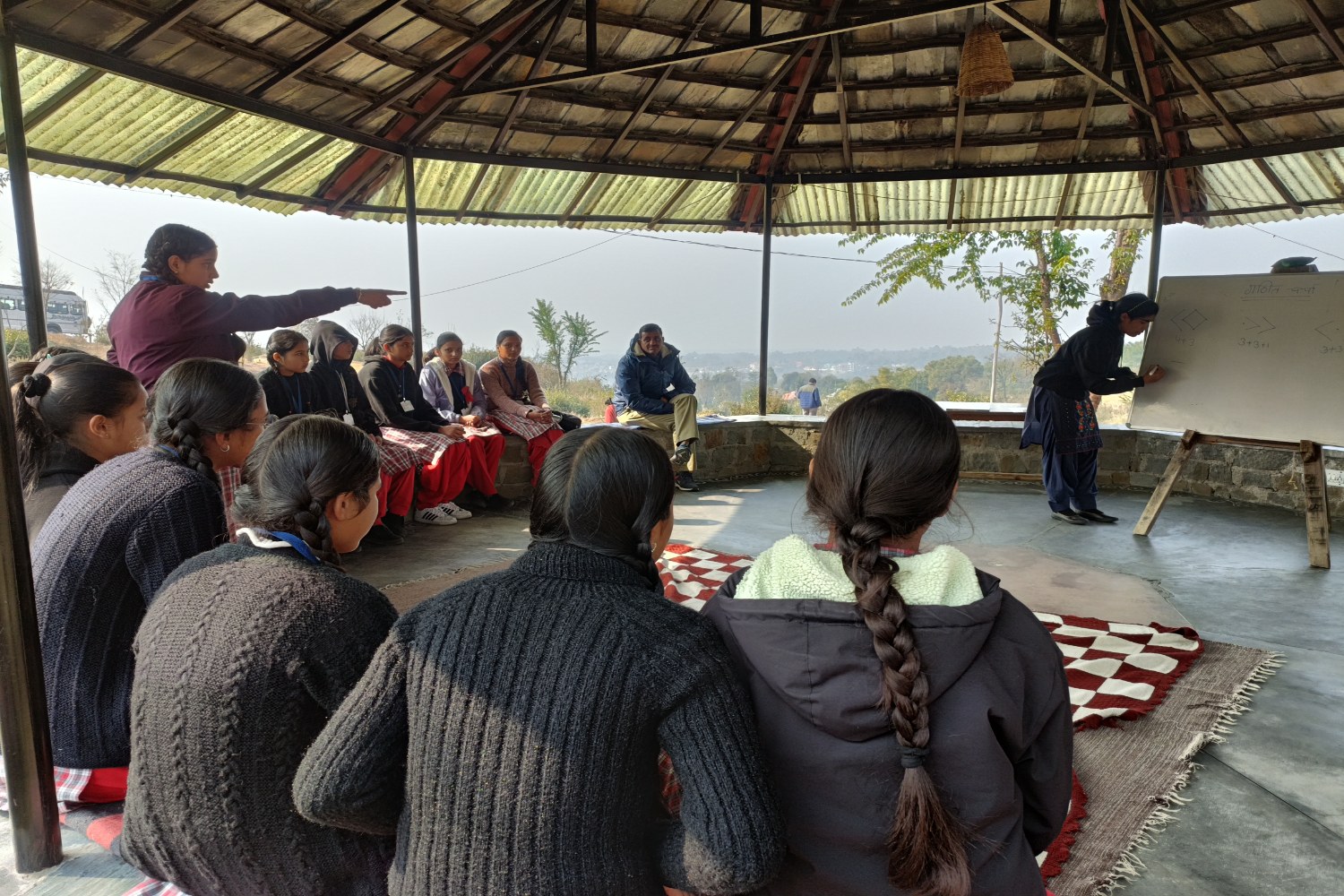
Personalized capacity building of educators at Firki
Firki is Teach For India’s online teacher education platform. It offers learning experiences in the form of courses, webinars, learning paths, online learning circles, and curated resources, in partnership with several organizations. At the core of Firki is the deep admiration for the role of educators. It strives to provide a sustainable platform for continuous professional development, as they drive the nation-building process through excellent education. You may contact them at [email protected]
Courses: With over 200 courses, Firki provides a range of materials tailored to various levels of teaching experience and expertise. These courses are organized into categories such as Classroom Culture, Classroom Instruction, Self-Development, School and Community, Subject Instruction, and Student Leadership, among others.
Most of their courses take the learners through the four stages of design thinking – Feel, Imagine, Do and Share, and finally an assessment to make the learning visible. The courses also have offline packets. These include a reflection journal that helps teachers document the strategies they learned and reflections from practice. The packets also have an offline learning circle plan that allows teachers to debrief the course theory and practice with peers and experts. The courses are available in six languages – English, Hindi, Tamil, Telugu, Kannada, and Marathi – and have seen 70,000+ enrollments. The content is downloadable for offline use in the Firki app.
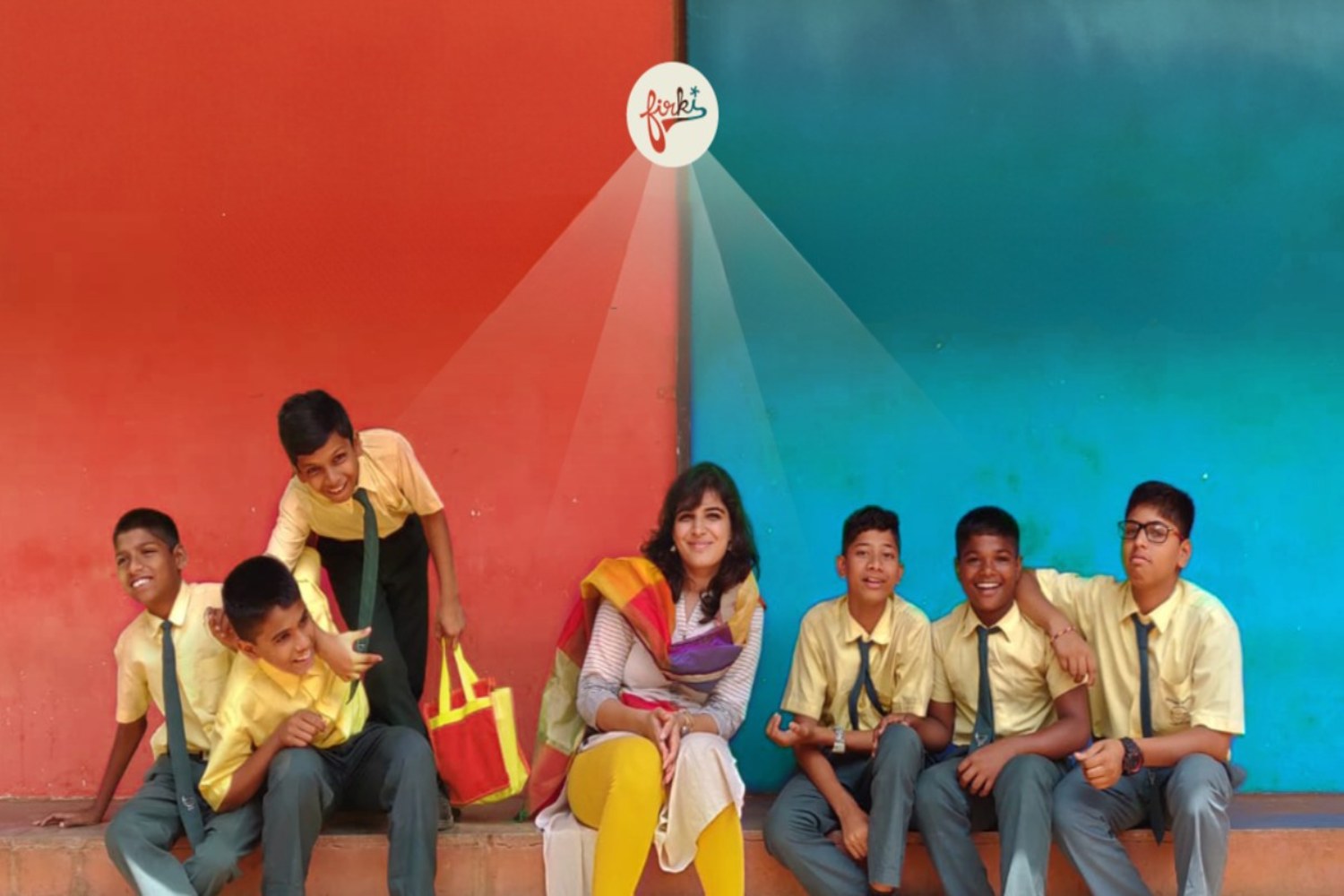
Links to the courses: In service courses | Pre service courses | School leader courses
Learning paths: Learning Paths are certified, blended learning opportunities for educators to engage with rigorous content and be part of workshops led by experts. These are designed for pre-service teachers, inservice teachers, teacher trainers and school leaders, and are offered in partnership with organizations. Participants engage with prework, expert-led sessions, post-work and assignments, while interacting with peers from diverse backgrounds.
Resources: The Firki portal hosts 1,200+ resources across grades I-XII on various topics including science, math, social science, English, computer science, wellbeing, general pedagogy, etc., in the form of lesson plans, content videos, worksheets, and articles, in partnership with 16 content partners.
Webinars: Firki conducts webinars by partnering with experts in the field on a variety of topics relevant to educators. These are recorded and uploaded on YouTube for future reference too.

No approved comments yet. Be the first to comment!